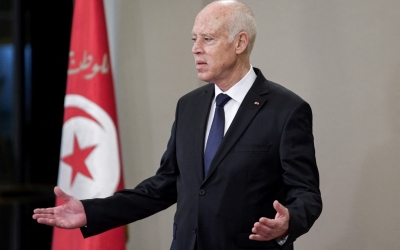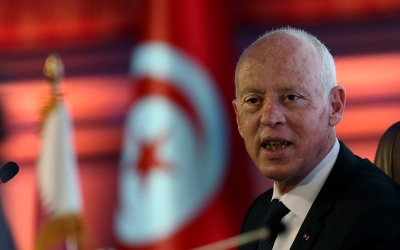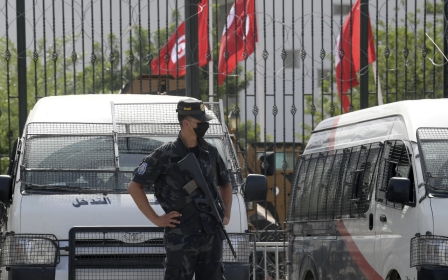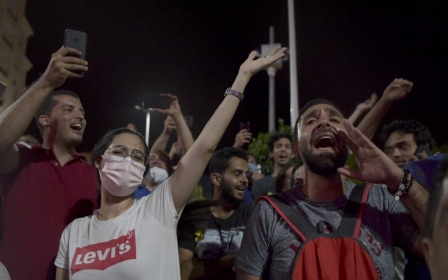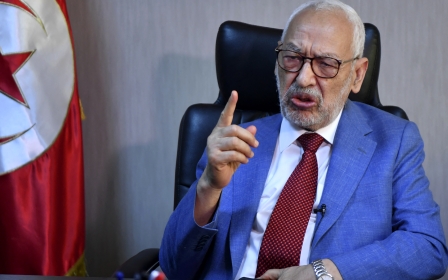Tunisia coup: Saied extends suspension of parliament indefinitely
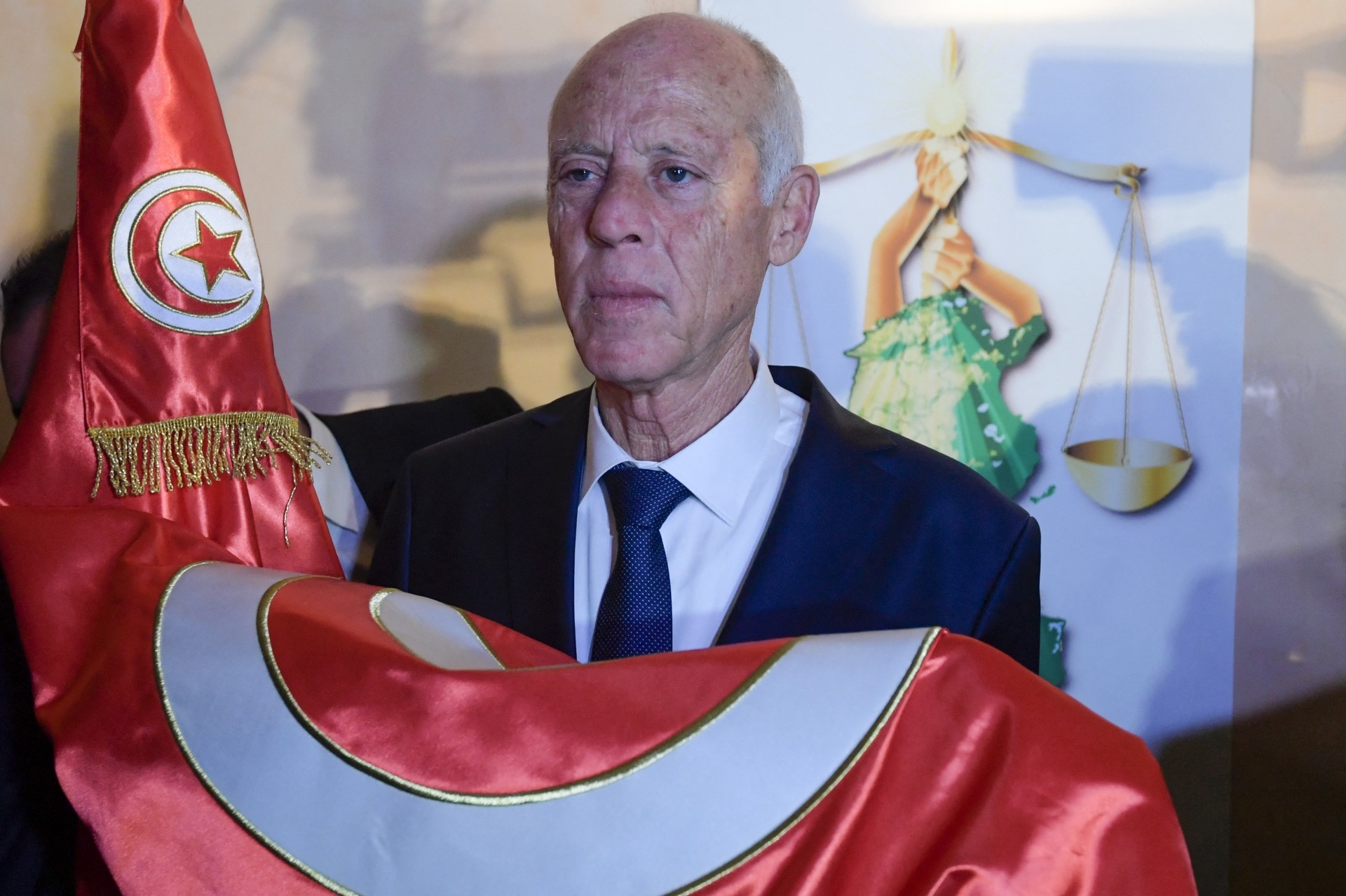
Tunisian President Kais Saied has extended the suspension of parliament - later calling the institution a "threat to the state" - until further notice, the presidency said, after last month dismissing his prime minister and assuming executive authority in a move opponents have branded as a coup.
The Tunisian presidency announced the move on Facebook at midnight on Monday, just as Tunisia ended the 30-day emergency period that Saied had triggered, and said it would also extend the suspension of MPs' immunity.
The presidency said Saied would outline further details in a televised speech in the coming days.
Later on Tuesday, in a meeting with the Minister of Commerce, Saied defended his decision to suspend parliament, describing parliament as a "threat to the state."
"Regarding the exceptional measures, they have been extended because of the imminent danger. It is a persistent danger. The existing political institutions, as they used to function, are a persistent threat to the state. The parliament itself is a threat to the state," Mosaique FM quoted him as saying.
New MEE newsletter: Jerusalem Dispatch
Sign up to get the latest insights and analysis on Israel-Palestine, alongside Turkey Unpacked and other MEE newsletters
In May, Middle East Eye revealed a secret document was being circulated in the presidency recommending Saied invoke Article 80 of the constitution to seize control of the country citing emergency powers.
In July, he did exactly that, saying the coronavirus and economic situation had become so dire that he needed to freeze parliament and dismiss the government, as well as launch an anti-corruption drive.
Hichem Mechichi, his dismissed prime minister, was detained and beaten by security forces after being told he would be replaced, sources told MEE. Mechichi made no public appearance for 10 days after Saied's announcement.
Legal experts say Saied's power grab is unconstitutional.
The power-grab has concerned Tunisia's western allies, with the United States outlining to Saied they expect him to return the country to the democratic path it had been following.
In a statement on Tuesday, the Group of the European People's Party (EPP Group), the largest political gathering in the European Parliament denounced Saied's decision to suspend parliament indefinitely, calling it "an attack against the very heart of the Tunisian democracy."
"The European Union Commission should immediately examine the possible measures to take to restore the respect of the Tunisian constitution," it said on Twitter.
Tunisia was previously lauded as the sole country to emerge from the Arab Spring uprisings with a democracy.
However in the decade since longtime autocrat Zine el-Abedine Ben Ali was toppled, its politicians have failed to address the worsening economic situation, and the political landscape has become increasingly polarised and fractured.
Saied, whose actions have been commended by the United Arab Emirates and Egypt, appears to enjoy popular support, particularly with the youth.
However, the president has yet to confirm a new prime minister or announce any kind of roadmap, despite it being demanded by western allies and key players in Tunisia, including the Tunisian General Labour Union (UGTT).
Workers' Party head Hamma Hammami, among many other Tunisian politicians, has decried Saied's moves as a coup and stressed that, having been president for two years, he is part of the system he rails against.
"The kind of populism that President Kais Saied represents is traditionalist and empty of any serious substantive programme. It is conservative regarding the rights of women and the place of religion in society," Hammami told Jadaliyya.
"He has no programme, no concrete priorities - only sweeping condemnations and ill-defined promises about 'cleansing' the country."
Meanwhile, several officials have been placed under house arrest, including the former head of the anti-corruption committee, Chawki Tabib.
It remains unclear why Tabib was placed under house arrest or what charges were levied against him.
Security forces also cordoned off the headquarters of the anti-corruption committee and told its employees to vacate the building.
Earlier this month, Tunisia banned 12 officials from leaving the country, including a former minister, on suspicion of corruption in the phosphate sector. It is believed there is an informal travel ban on anyone who has sat in parliament since 2011.
Middle East Eye delivers independent and unrivalled coverage and analysis of the Middle East, North Africa and beyond. To learn more about republishing this content and the associated fees, please fill out this form. More about MEE can be found here.


